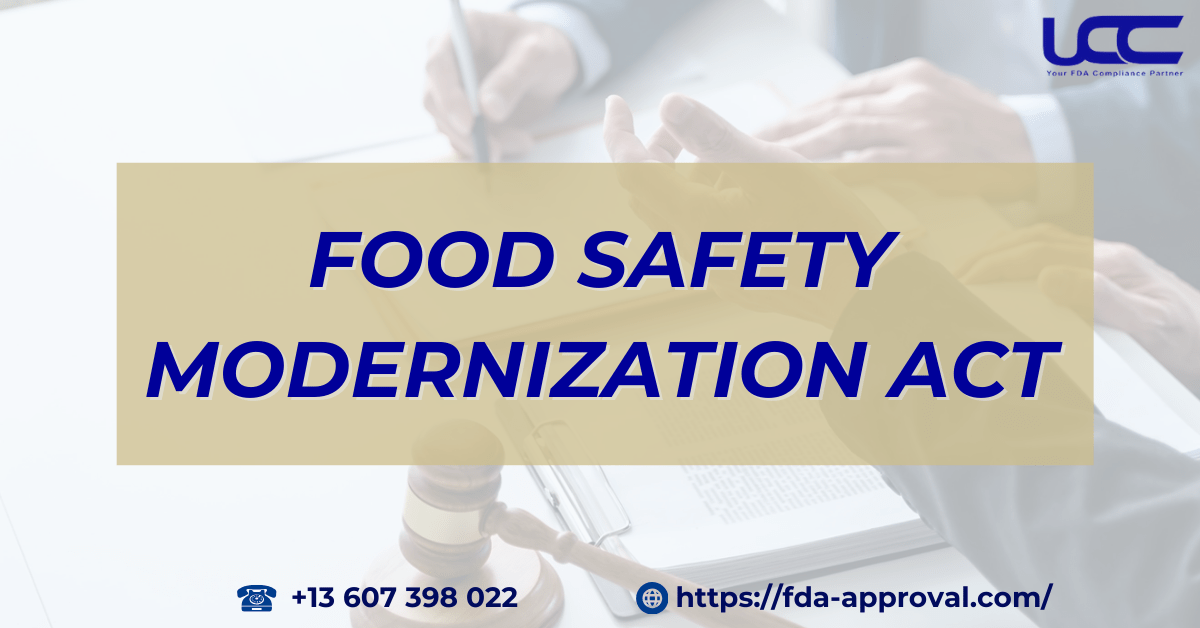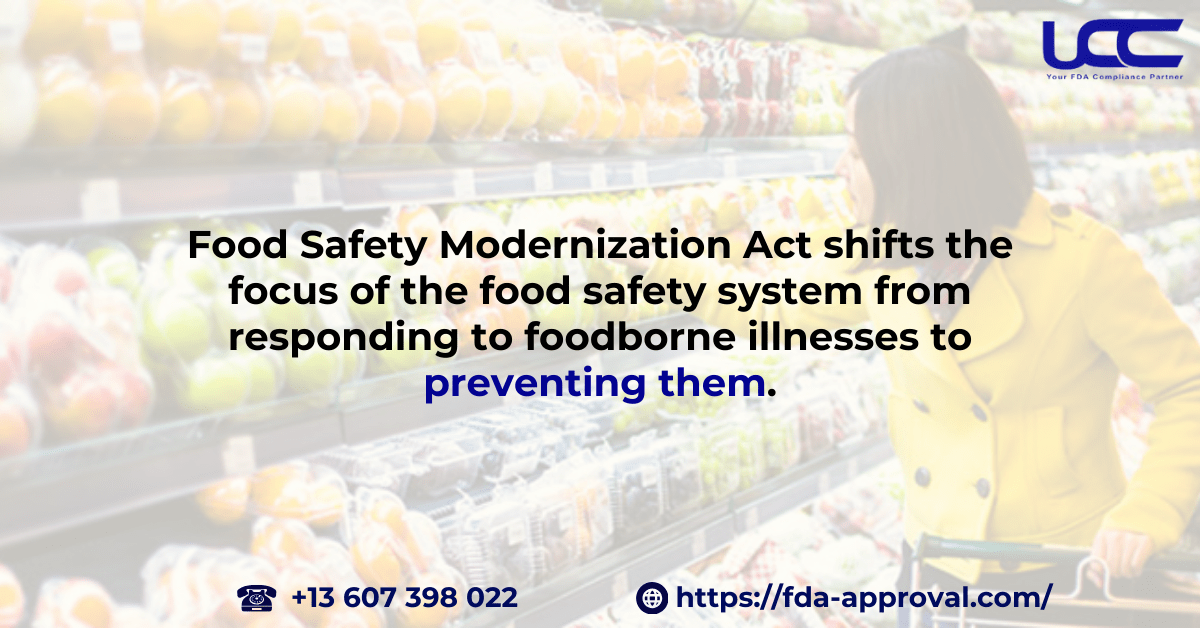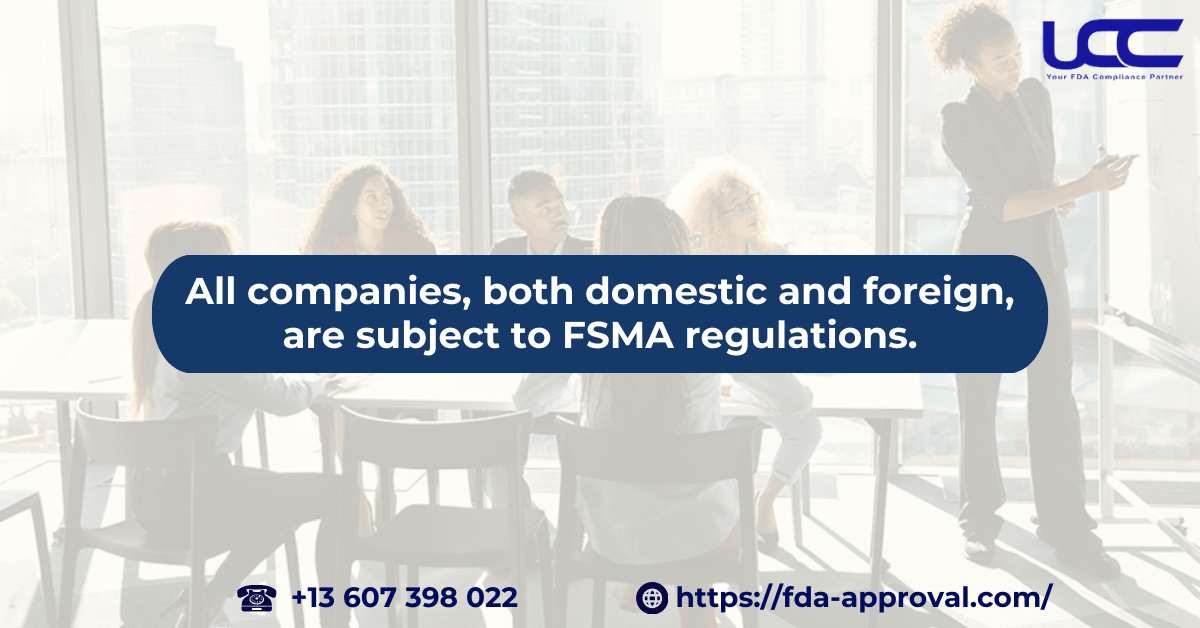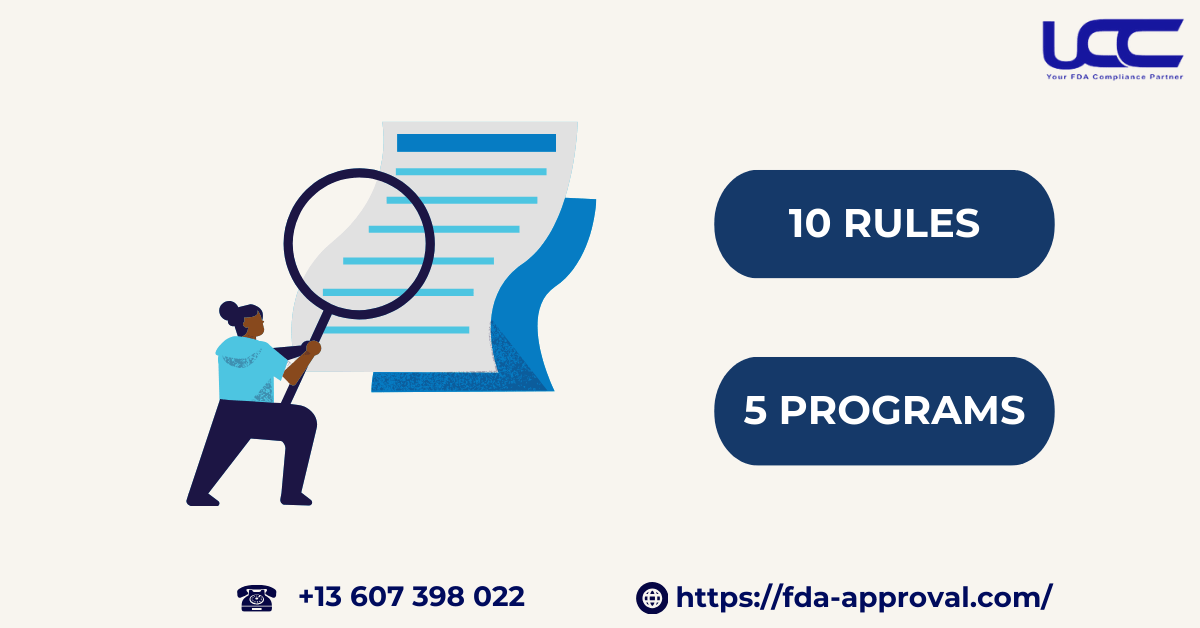FSMA is regarded as the first law to fundamentally amend food safety regulations in over 70 years. So, what significance does the Food Safety Modernization Act hold, and what are its related provisions? In this article, UCC will help you gain a better understanding of the information related to FSMA!

1. Explanation of the Food Safety Modernization Act (FSMA)
The Food Safety Modernization Act (FSMA) was officially signed into law by President Obama on January 4, 2011. Specifically, this legislation mandates that, starting in September 2018, all food processors in the United States and globally must comply with FSMA regulations in order to export food to the U.S. Consequently, this law plays a crucial role in enhancing food safety standards. Additionally, FSMA empowers the Food and Drug Administration (FDA) with the authority to oversee food cultivation, harvesting, and processing.
2. Key Provisions of FSMA
FSMA includes several critical provisions, such as:
- Approaches to safeguard food against deliberate contamination.
- Ensuring the hygienic transportation of food for both humans and animals.
- Implementing safe production rules and environmental impact reporting.
- Establishing Foreign Supplier Verification Programs (FSVP).
- Certifying trustworthy third-party auditors.
- Enforcing preventive controls under the final rules for human food.
- Implementing preventive measures under the final rules for animal food.
3. The Role of FSMA in Food Safety

As previously mentioned, the Food Safety Modernization Act shifts the focus of the food safety system from responding to foodborne illnesses to preventing them. This change is crucial for enhancing our understanding of foodborne diseases and their impact on public health and the economy. Moreover, FSMA addresses all potential risks related to food safety throughout the entire supply chain—from production and sourcing to processing, labeling, packaging, distribution, and market release. Therefore, it serves as a federal response to the alarming rates of foodborne illnesses affecting the population. In summary, FSMA is essential for improving food safety and protecting consumer health.
4. Applicability of Food Safety Modernization Act

According to the law, all food manufacturers and suppliers regulated by the FDA must comply with FSMA regulations. This requirement extends to domestic facilities and foreign food businesses that engage with the U.S. market. However, some entities are typically exempt from these regulations, including:
- Food industries associated with fresh products like meat, dairy, and poultry, which fall under USDA regulations.
- Personal use cases, as specified by the FDA, do not need to comply with FSMA.
- Farms and producers dealing in raw agricultural products and domestic food are also exempt.
- Additionally, farms with annual sales below $25,000 are exempt from FSMA regulations.
On another note, food businesses with established Hazard Analysis Critical Control Point (HACCP) plans must adhere to FSMA. Consequently, all updates and regular improvements to HACCP plans are included within FSMA’s requirements.
5. Important Components of Food Safety Modernization Act
Currently, the FDA has developed 10 principles and 5 programs to effectively implement FSMA. Specifically, for each principle, FSMA outlines targeted actions that must be taken to mitigate risks related to food safety. Consequently, this structured approach significantly enhances the safety of the food supply for all consumers.

5.1. Rules
- Produce Safety
- Pre-Harvest Agricultural Water
- Accredited Third-Party Certification
- Food Traceability
- Foreign Supplier Verification Programs (FSVP) for Importers of Food for Humans and Animals
- Laboratory Accreditation for Analyses of Foods (LAAF)
- Mitigation Strategies to Protect Food Against Intentional Adulteration
- Preventive Controls for Human Foods
- Preventive Controls for Animal Food
- Sanitary Transportation of Human and Animal Food
5.2. Programs
- Accredited Third-Party Certification
- Foreign Suppliers Verification (FSVP) – List of Participants
- Foreign Suppliers Verification (FSVP) – Importer Portal for Records Submission
- Laboratory Accreditation for Analyses of Foods (LAAF)
- Voluntary Qualified Importer (VQIP)
6. About UCC
UCC has its headquarters located in Bellingham, USA. Moreover, we provide representation services across various sectors, including Food, Cosmetics, Pharmaceuticals, and Medical Devices. Besides, with 15 years of experience and over 2,600 clients worldwide, we have established a strong reputation for excellence.
Additionally, our team of experts possesses extensive experience in working with the FDA, ensuring we remain current with regulatory developments. By choosing UCC, you can therefore expect our unwavering commitment to assist your business in complying with FSMA regulations. Please do not hesitate to contact us for prompt and tailored consultation.
For more information: FSVP Representative: Key Role in Import Compliance
We sincerely hope this article has enhanced your understanding of FSMA. Furthermore, we look forward to the opportunity to partner with your business as you navigate the global market.



